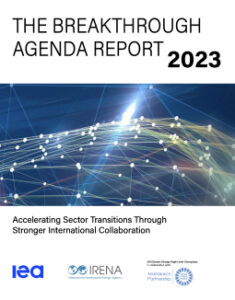Breakthrough Agenda
The Breakthrough Agenda aims to strengthen international collaboration to make clean technologies and sustainable solutions the most affordable, accessible and attractive option in key sectors and in all regions by 2030.
The Breakthrough Agenda was launched at COP26 to help the world close the “collaboration gap” and accelerate international action on climate change to meet the Paris Agreement’s global decarbonisation targets.
By giving the world a framework to prioritise, coordinate, and enhance collaborative action across seven high emitting sectors, the Breakthrough Agenda enables governments and businesses across the world to work together in a more coordinated way to take urgent and decisive action on the world’s biggest challenge.
Jump to a section
About the Breakthrough Agenda
What is the Breakthrough Agenda?
The Breakthrough Agenda is an unprecedented international clean technology process to help keep 1.5°C in reach, created by world leaders at COP26. It provides a framework for countries, businesses and civil society to join up and strengthen their actions every year in key emitting sectors, and a service to support coalitions of leading public, private, and public-private global initiatives to deliver those actions.
Since its launch, the Breakthrough Agenda has established an internationally-recognised, annual, COP-centred, collaborative process – backed by 57 countries covering over 80% of global GDP, and by 100+ international initiatives – that enhances global cooperation in seven key sectors: power, road transport, steel, hydrogen, agriculture, buildings, and cement and concrete, covering over 60% of global emissions.
“Today’s commitment by governments representing more than 60 percent of GDP shows that there is a network of leaders ready to make change not only possible, but achievable.”
Dr. Sultan bin Ahmed Al Jaber, COP28 President
The annual breakthrough agenda cycle
Mapping the landscape of international collaboration initiatives and activities in each sector.
Strategic review of progress and priorities in each sector transition.
Identifying the most urgent opportunities to strengthen international collaboration.
Reviewing and developing priority actions, above and beyond current collaborative actions.
Launch action plans in response to the Report recommendations at COP.
Countries strengthen and prioritise international collaboration to deliver actions via existing initiatives.
What is the purpose of the Breakthrough Agenda?
The Breakthrough Agenda provides a collaborative framework comprising: Commitments, an annual Process and a Service to the international community.
The Breakthrough Agenda process coordinates, prioritises, and enhances global cooperation to make clean technologies affordable and accessible in all regions by 2030.
Coordinate
Facilitates coordination between initiatives and governments in each sector to review collective efforts from COP to COP, align progress on priority actions, and make recommendations on how to plug gaps.
Prioritise
Based on independent advice, building consensus amongst leading governments and the private sector on the top priority actions needed internationally in each sector to accelerate clean technology and sectoral transitions every year.
Enhance
Convenes decision-makers to crowd in efforts through an annual cycle of tracking global progress and strengthening climate governance and accountability.
What is the Breakthrough Agenda report?
The Report
The Breakthrough Agenda’s annual cycle is informed by an annual independent expert report from the International Energy Agency (IEA), International Renewable Energy Agency (IRENA), and UN High Level Climate Action Champions.
The inaugural Breakthrough Agenda report was published in September 2022, warning that an “international collaboration gap” threatens to delay net zero by decades. This year in the 2023 report, the authors updated their recommendations to strengthen collaboration between governments, businesses, and civil society in areas such as common standards, technology R&D, trade, and improved technical and financial assistance.
The purpose of the report is to provide an independent, authoritative assessment of the progress being made in each Breakthrough sector and to make recommendations on the most urgent and high-impact opportunities to strengthen international collaboration that can accelerate progress towards the Breakthrough goals.
Countries develop Priority Actions to respond to the recommendations from the report authors, to guide tangible and collaborative action each year.
There are 57 governments committed to the Breakthrough Agenda:

Sector specific goals and actions
What are Breakthrough Agenda goals and priority actions for each sector?
Global cooperation under the Breakthrough Agenda initially focused on five key sectors – Power, Road Transport, Steel, Hydrogen, and Agriculture. At COP28, new Breakthroughs on Buildings and Cement & Concrete were launched.
Each Breakthrough is co-led by two or three active emerging or developed countries and is focused on achieving a 2030 goal by convening coalitions of countries and initiatives to deliver annually agreed Priority Actions.
The goals for each Breakthrough, the Priority Actions for 2024 and a list of the countries leading and actively supporting them can be accessed by clicking on each sector heading below.
Breakthrough
Country Co-Leads
The annually refreshed Priority Actions respond to the recommendations for urgent strengthened and coordinated international action from the annual Breakthrough Agenda Report.
The Priority Actions do not reflect everything that needs to happen collaboratively internationally. Instead, they target the most urgent and high priority areas where additional efforts are needed to significantly strengthen international collaboration.
Explore the toolkit
Communications toolkit
Working through the Breakthrough Agenda, partners can help accelerate clean technology transitions in each sector by strengthening international collaboration, cooperation and coordination. Together this will enable us to realise the opportunities of working together: faster innovation, greater economies of scale, bigger incentives to invest, and level playing fields where needed.
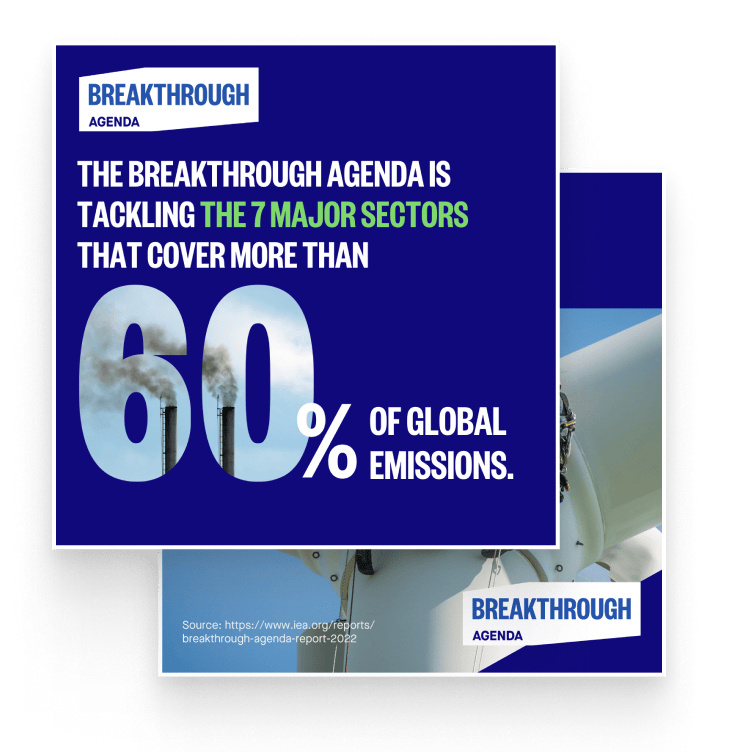
Partners
The Breakthrough Agenda convenes the landscape of key international initiatives in each sector. Currently, the list of initiatives actively supporting each Breakthrough include:
- Energy Transition Council
- Green Grids Initiative
- Breakthrough Energy Catalyst
- Sustainable Energy for All
- Climate Investment Funds
- The Global Energy Alliance for People and Planet
- E3G
- International Labour Organization
- Missions Innovation Green Powered Future Mission
- Clean Energy Ministerial International Smart Grid Action Network
- 21st Century Power Partnership
- Global Power System Transformation Consortium
- Clean Energy Ministerial Super-Efficient Equipment and Appliance Deployment
- IEA Digital Demand-Driven Electricity Networks Initiative
- IEA 4E Energy Efficiency End-Use Equipment
- Sustainable Energy for All Mission Efficiency
- Climate Group EP100
- Accelerating to Zero Coalition
- Drive to Zero, Global Memorandum of Understanding (MOU) on Zero-Emission Medium- and Heavy-Duty Vehicles
- Clean Energy Ministerial Electric Vehicles Initiative
- The Climate Group EV100
- The Climate Group EV100+
- WEF First Movers Coalition
- Smart Freight Centre
- Zero Emission Vehicle Transition Council
- World Bank
- FIA Foundation
- International Council on Clean Transportation
- World Business Council for Sustainable Development
- University of California, Davis – Electric Vehicle Research Center
- The Global Fuel Economy Initiative
- Global Battery Alliance
- Circular Cars Initiative
- The Environmental Collaboratory at Drexel University
- UN Economic Commission for Europe
- CALSTART
- Transport Decarbonisation Alliance
- Green Grids Initiative
- UN Environment Programme
- Clean Energy Ministerial Industrial Deep Decarbonisation Initiative (CEM IDDI)
- Responsible Steel
- IEA Working Party on Industrial Decarbonisation
- World Trade Organisation
- World Steel Association
- G7 Climate Club
- International Organisation for Standardisation
- WEF First Movers Coalition
- Steel Zero
- Mission Innovation Net Zero Industries Mission
- Mission Possible Partnership
- Lead Industry Transition
- UN Industrial Development Organisation
- Climate Investment Fund Industrial Decarbonisation Programme
- International Partnership for Hydrogen and Fuel Cells in the Economy (IPHE)
- International Energy Agency’s Hydrogen TCP
- International Renewable Energy Agency's Collaborative Framework on Green Hydrogen
- UN Industrial Development Organisation
- Clean Energy Ministerial Industrial Deep Decarbonisation Initiative (CEM IDDI)
- WEF First Movers Coalition
- Steel Zero
- Mission Innovation Net Zero Industries Mission
- Mission Possible Partnership
- RMI
- Innovation Commission for Climate Change, Food Security and Agriculture
- Food and Agriculture Organization of the United Nations
- Global Crop Diversity Trust
- Global Research Alliance on Agricultural Greenhouse Gases
- AIM for Climate
- Global Methane Hub
- CGIAR
- Shamba Centre for Food & Climate Heat
- Foundation for Food & Agriculture Research – Efficient Fertilizer Consortium
- International Fertiliser Development Centre
- African Plant Nutrition Institute
- African Fertiliser and Agri-Business Partnership
- The WBCSD Built Environment Transformation Program
- WorldGBC Advancing Net Zero
- Net Zero Carbon Buildings Commitment
- WorldGBC BuildingLife Programme
- Programme for Energy Efficiency in Buildings (PEEB; co-led by GIZ/AFD)
- WRI Zero Carbon Building Accelerator
- WRI Building Efficiency Accelerator
- C40 Clean Construction programme, including the Clean Construction Accelerator
- C40 Private Building Efficiency (PBE)
- C40 New Building Efficiency (NBE) networks
- Net Zero Buildings Accelerator
- The GlobalABC Market Transformation Work Area
- The Clean Heat Forum
- The BuildingToCOP coalition
- The Solar Impulse Foundation
- The Building Capacity for Resilient Buildings Program (led by the International Code Council)
- Cool Coalition (Hosted by UNEP)
- EDGE Green Buildings (IFC-World Bank Group)
- Building Resilience Index (IFC-World Bank Group)
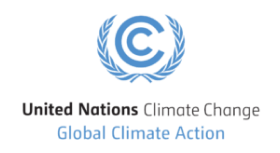
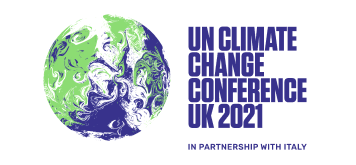






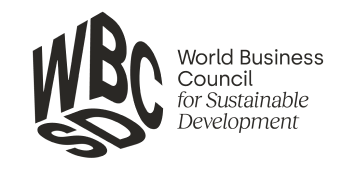

Contact us
Contact
"*" indicates required fields

